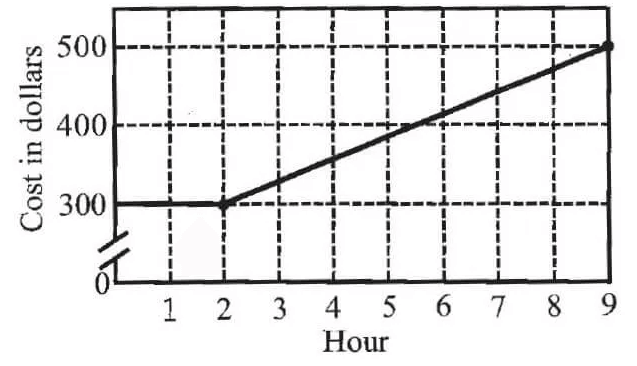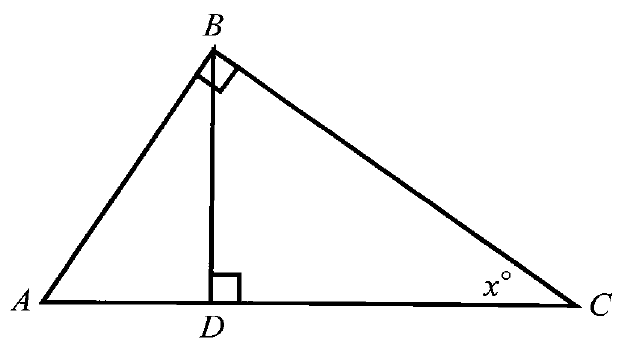HOW TO FACTOR POLYNOMIALS WITH 4 TERMS
Factoring Four Term Polynomials by Grouping
In a polynomial with four terms, group first two terms together and last two terms together.
Determine the greatest common divisor of each group, if it exists.
If the greatest common divisor exists, factor it from each group and factor the polynomial completely.
Factor the following polynomials by grouping :
Example 1 :
x3 - 2x2 - x + 2
Solution :
= x3 - 2x2 - x + 2
= (x3 - 2x2) + (-x + 2)
= x2(x - 2) - 1(x - 2)
= (x2 - 1)(x - 2)
= (x2 - 12)(x - 2)
Using algebraic identity a2 - b2 = (a + b)(a -b),
= (x + 1)(x - 1)(x - 2)
Example 2 :
x3 + 3x2 - x - 3
Solution :
= x3 + 3x2 - x - 3
= (x3 + 3x2) + (-x - 3)
= x2(x + 3) - 1(x + 3)
= (x2 - 1)(x + 3)
= (x2 - 12)(x + 3)
Using algebraic identity a2 - b2 = (a + b)(a -b),
= (x + 1)(x - 1)(x + 3)
Example 3 :
x3 + x2 - 4x - 4
Solution :
= x3 + x2 - 4x - 4
= (x3 + x2) + (-4x - 4)
= x2(x + 1) - 4(x - 1)
= (x2 - 4)(x + 1)
= (x2 - 22)(x + 1)
Using algebraic identity a2 - b2 = (a + b)(a -b),
= (x + 2)(x - 2)(x + 1)
Example 4 :
x3 - 3x2 + 2x - 6
Solution :
= x3 - 3x2 + 2x - 6
= (x3 - 3x2) + (2x - 6)
= x2(x - 3) + 2(x - 3)
= (x2 + 2)(x - 3)
Example 5 :
x4 - x3 - x + x2
Solution :
= x4 - x3 - x + x2
Arrange the terms with powers in descending order.
= x4 - x3 + x2 - x
= (x4 - x3) + (x2 - x)
= x3(x - 1) + x(x - 1)
= (x3 + x)(x - 1)
= x(x2 + 1)(x - 1)
Example 6 :
5a - 5b - xa + xb
Solution :
= 5a - 5b - xa + xb
= (5a - 5b) + (-xa + xb)
= 5(a - b) - x(a - b)
= (a - b)(5 - x)
Factoring Four Term Polynomials without Grouping
Let P(x) be a polynomial with four terms.
To factor P(x) without grouping, substitute
x = -1, 1, -2, 2, -3, 3.......
P(-1) = 0 ----> (x + 1) is a factor of P(x)
P(1) = 0 ----> (x - 1) is a factor of P(x)
P(-2) = 0 ----> (x + 2) is a factor of P(x)
P(2) = 0 ----> (x - 2) is a factor of P(x)
If P(-1) ≠ 0, then (x + 1) is not a factor of P(x).
Then, try x = 1, x = -2, x = 2 and so on.
Once one of the linear factors of P(x) is found, the other factors can bound easily (the rest of the process has been explained in the following examples)
Factor the following polynomials without grouping :
Example 1 :
x3 - 2x2 - x + 2
Solution :
Let p(x) = x3 - 2x2 - x + 2.
Substitute x = -1.
p(-1) = (-1)3 - 2(-1)2 - (-1) + 2
= -1 - 2(1) + 1 + 2
= -1 - 2 + 1 + 2
= 0
Since P(-1) = 0, (x + 1) is a factor of P(x).
Since P(x) is a cubic polynomial, the other factor can be assumed as (x2 + ax + b).
Then,
(x + 1)((x2 + ax + b) = x3 - 2x2 - x + 2
Comparing the coefficients of x and constants,
|
b + a = -1 ----(1) |
b = 2 |
Substitute b = 2 in (1).
2 + a = -1
a = -3
x2 + ax + b = x2 - 3x + 2
Factors of (x2 - 3x + 2) are (x - 1) and (x - 2).
Therefore,
x3 - 2x2 - x + 2 = (x + 1)(x - 1)(x - 2)
Example 2 :
x3 + 3x2 - 4x - 12
Solution :
Let p(x) = x3 + 3x2 - 4x - 12.
Substitute x = -1.
p(-1) = (-1)3 + 3(-1)2 - 4(-1) - 12
= -1 + 3(1) + 4 - 12
= -1 + 3 + 4 - 12
= -6 ≠ 0
Since P(-1) ≠ 0, (x + 1) is not a factor of P(x)..
Substitute x = 1.
p(1) = 13 + 3(1)2 - 4(1) - 12
= 1 + 3 - 4 - 12
= -12 ≠ 0
Substitute x = -2.
p(-2) = (-2)3 + 3(-2)2 - 4(-2) - 12
= -8 + 3(4) - 8 - 12
= -8 + 12 - 8 - 12
= 0
Since P(-2) = 0, (x + 2) is a factor of P(x).
Since P(x) is a cubic polynomial, the other factor can be assumed as (x2 + ax + b).
Then,
(x + 2)((x2 + ax + b) = x3 + 3x2 - 4x - 12
Comparing the coefficients of x and constants,
|
b + 2a = -4 ----(1) |
2b = -12 b = -6 |
Substitute b = -6 in (1).
-6 + 2a = -4
2a = 2
a = 1
x2 + ax + b = x2 + x - 6
Factors of (x2 + x - 6) are (x - 2) and (x + 3).
Therefore,
x3 + 3x2 - 4x - 12 = (x + 2)(x - 2)(x + 3)
Kindly mail your feedback to v4formath@gmail.com
We always appreciate your feedback.
©All rights reserved. onlinemath4all.com
Recent Articles
-
Logarithmic Derivative Problems and Solutions
Apr 16, 25 09:25 PM
Logarithmic Derivative Problems and Solutions -
Digital SAT Math Problems and Solutions (Part - 145)
Apr 16, 25 12:35 PM
Digital SAT Math Problems and Solutions (Part - 145) -
Digital SAT Math Problems and Solutions (Part - 144)
Apr 14, 25 07:27 PM
Digital SAT Math Problems and Solutions (Part - 144)

